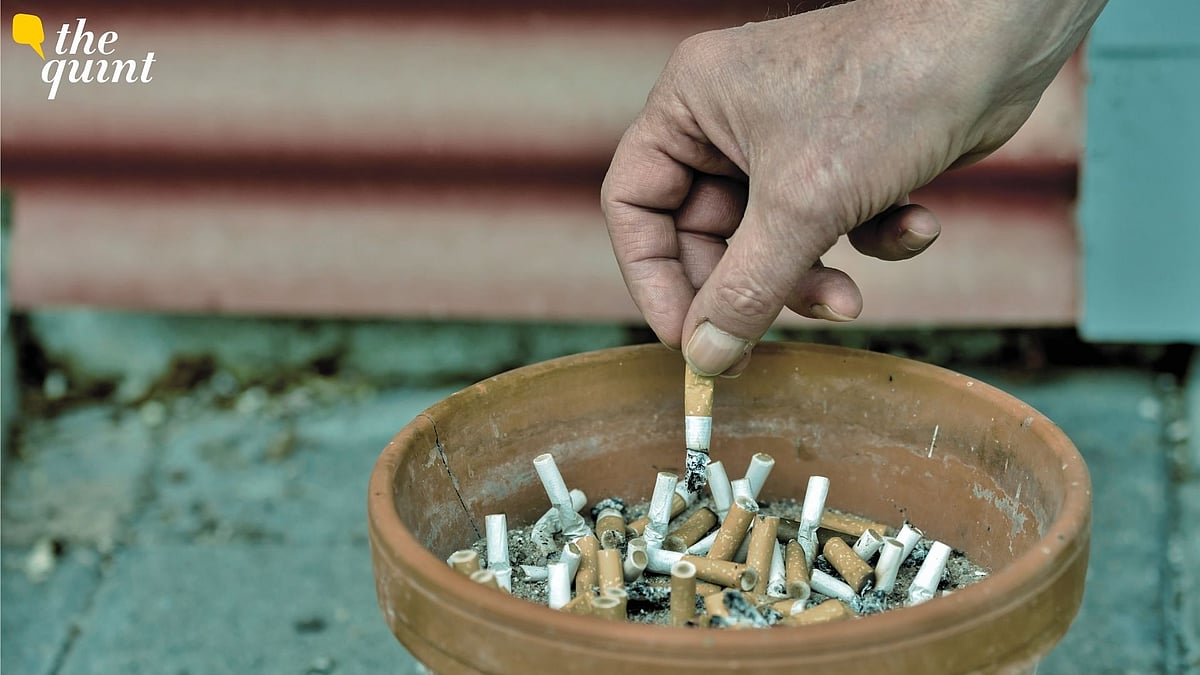Cigarette Filters Don’t Protect Smokers’ Health, Only Cause Plastic Pollution
Some tobacco companies now market “biodegradable” filters made from new materials. But these are a false solution.

advertisement
Cigarette filters were widely introduced in the 1950s, ostensibly to make smoking less harmful. With growing public concern about lung cancer and other smoking-related diseases, the tobacco industry responded not by making cigarettes safer, but by making them seem safer. Filters were the perfect innovation – not for health, but for public relations.
Over 70 years later, we know that filters don’t reduce harm. In fact, they may exacerbate some risks.
In the early 1950s, one popular filter type even contained asbestos. Despite this, most smokers today still believe filters make cigarettes safer.
Beyond the health deception, cigarette filters create an environmental disaster. They’re made of a plastic called cellulose acetate. They don’t biodegrade but break down into microplastics, polluting our rivers and oceans.
And there are a lot of them. Cigarette butts are the single most littered item on the planet.
While legislation has restricted other single-use plastics like bottles, bags and straws, cigarette filters have largely escaped such regulatory attention.
Under pressure, some tobacco companies now market “biodegradable” filters made from new materials. But these are a false solution.
Even so-called biodegradable filters offer no health benefit and continue to pollute ecosystems. They serve the industry by creating an illusion of environmental responsibility, all while maintaining the false perception that filters themselves are benign or necessary.
So Why Not Ban Cigarette Filters Outright?
Cigarette filters are among the most harmful single-use plastics still in global circulation. And unlike many other pollutants, they serve no essential purpose.
The WHO Framework Convention on Tobacco Control already advises against measures that sustain the perception of reduced harm, and cigarette filters fall squarely into that category.
It could reduce smoking prevalence, as unfiltered cigarettes are generally harsher and less palatable. And it would eliminate one of the most widespread sources of plastic pollution, preventing hundreds of thousands of tonnes of plastic waste each year.
If we can ban plastic straws, surely we can ban cigarette filters. In fact, it’s already been done. Santa Cruz in California voted to ban cigarette filters in 2024.
Now is the perfect time to act. Plastics are on the global conscience. This month in Geneva, world leaders negotiated what could become the first legally binding UN treaty addressing plastic pollution from production to disposal. This treaty is a rare opportunity to tackle the root causes of plastic waste globally.
The current draft of the treaty includes cigarette filters, but only partially. Plastic cigarette filters are listed in Annex X, a category concerned with voluntary or mandatory restrictions.
This leaves room for continued use, including so-called “eco” filters, and does not mandate a total phase-out.
If all cigarette filters (not just plastic ones) were listed in Annex Y, they would be set for a complete and mandatory ban. August negotiations continued without a final agreement, and negotiations will continue at a later date, meaning there is still time to act.
Banning filters won’t end smoking overnight or eliminate plastic pollution. But it would be a meaningful and symbolic step toward aligning environmental and public health goals. It would remove a harmful and misleading product from the market, reduce pollution and make cigarettes more honest.
(This article is republished from The Conversation under a Creative Commons license. Read the original article here.)